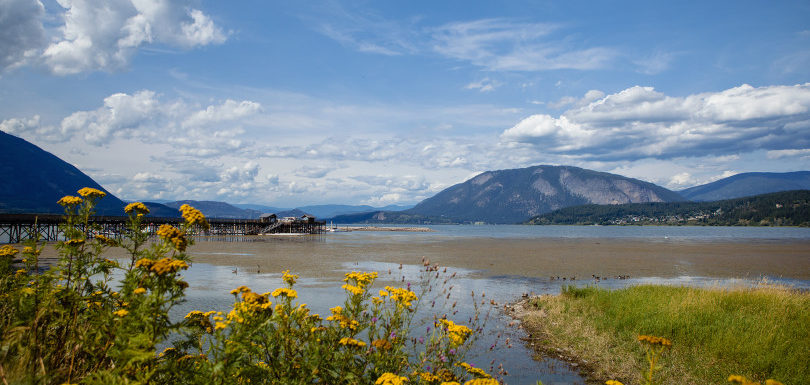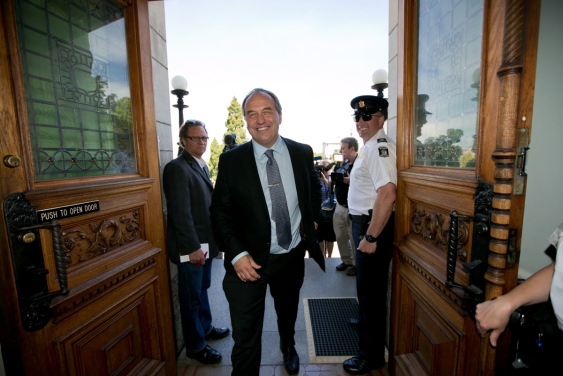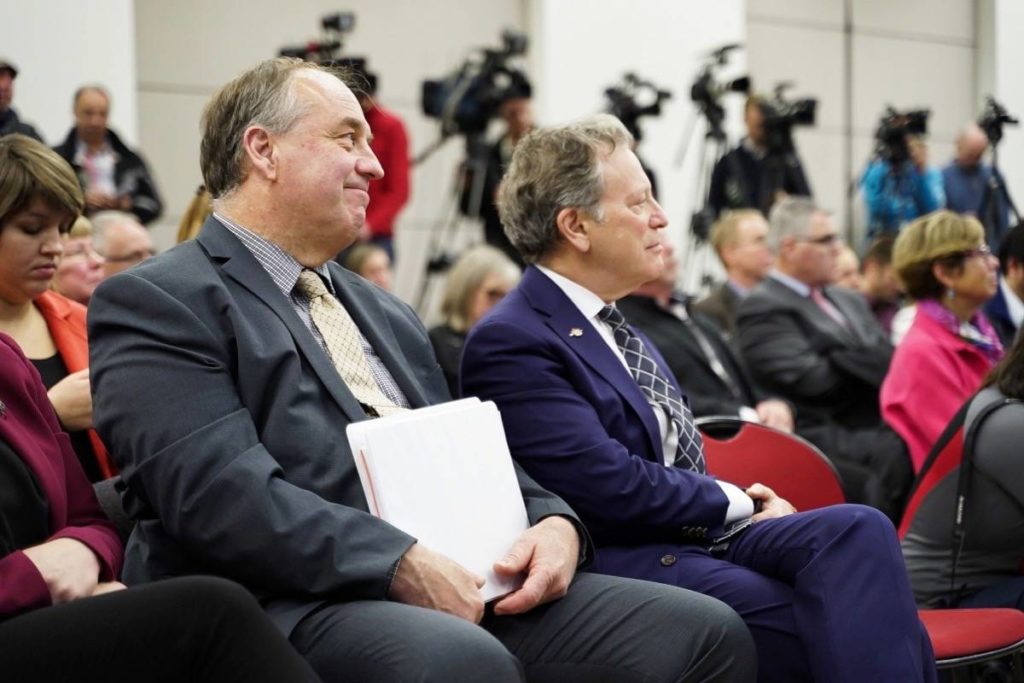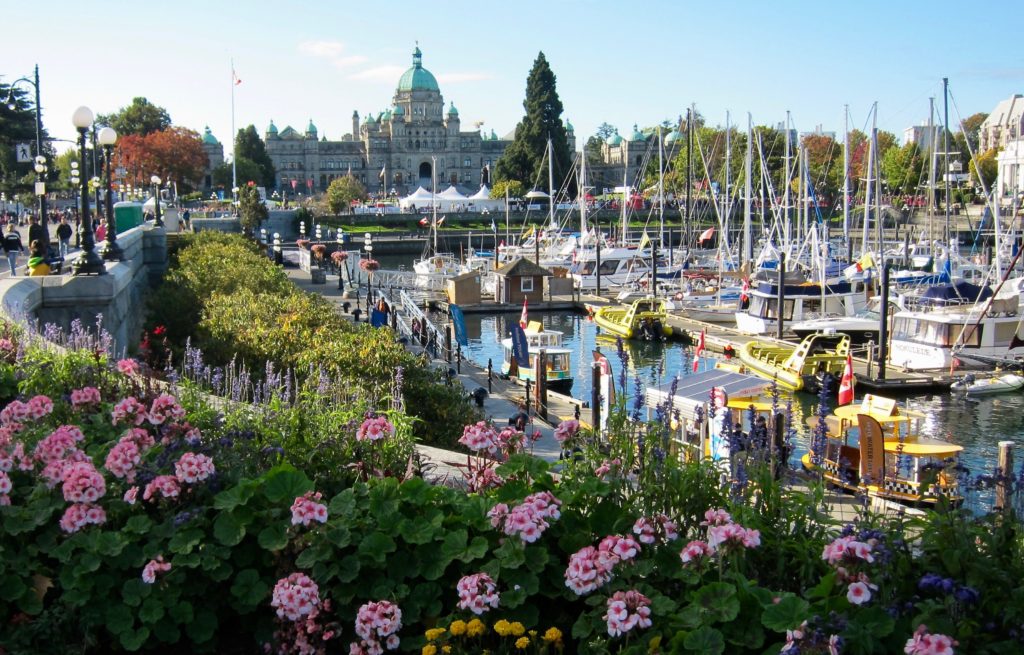Agents of Change: Andrew Weaver on BC’s Clean Future


If you want something done right sometimes you have to do it yourself. And that’s exactly what University of Victoria professor turned politician Andrew Weaver did when he saw a lack of climate leadership within the British Columbia government. As the province’s first Green Party legislative member, he has worked tirelessly to drive climate action forward.
I have two answers when people ask me what the most serious consequences of global warming will be. The first is its effect on the world’s natural ecosystems; the second is the way it will threaten global security and trigger geopolitical instability.
Having spent the first 25 years of my career as a climate scientist, and the last 6 as a politician hell-bent on advancing climate policy, I am able to speak to both in detail.
Prior to being elected into the British Columbia legislature, I was an atmosphere/ocean/climate scientist, with a background in physics and applied mathematics at the University of Victoria, and a Lead Author on four of the United Nations Intergovernmental Panel on Climate Change reports.
In 2008, I was a member of BC’s Climate Action Team, which advised then-premier Gordon Campbell on his climate plan. The team helped Mr. Campbell implement Canada’s first revenue-neutral carbon tax, the province’s Clean Energy Act and aggressive pollution reduction goals for BC. Our province met our first emissions reduction target and proved you could decouple greenhouse gas rates from economic growth. Our emissions dropped as our economy grew.
After a change in government in 2011, the new administration started to systematically unravel the strong work Mr. Campbell had advanced. The expansion of the fossil fuel sector became their top priority and they unveiled plans to make BC one of the world’s worst emitters.
In my Climate and Society course at UVic, I always encouraged my students to vote for representatives who were willing to take climate change seriously. If there are none on the ballot, I’d tell them, you should consider running yourself.
Watching with dismay as our province slipped from being a climate leader to laggard, I eventually – and reluctantly – realized I needed to follow my own advice.
I ran for office in 2013 and was elected as the province’s first Green member of the legislative assembly. As the lone Green MLA in a chamber filled with politicians keen on advancing oil and gas development, it was a tough slog. I was able to get some traction on important issues like banning corporate and union donations to political parties, cracking down on foreign housing speculation, and passing legislation to protect survivors of sexualized violence on university and college campuses.

But when it came to voting on fossil fuels, I was one vote against 86.
It could feel inspiring some days, being able to voice my opposition directly to the powers that be. But often it felt bitterly futile. With so much at stake, how could they be so committed to making the problem worse?
Keeping up with scientific developments – recording-breaking levels of CO2 emissions, record-breaking heatwaves, droughts, extreme weather events, glacier melt, ice loss, sea-level rise, species extinction – while sitting in the Chamber felt like mental whiplash.
Compared to the scale and severity of this global challenge, my work in the legislature could have felt insignificant. But by focusing on serving my community and doing what I could to echo the concerns of so many into the halls of power, I found purpose.
I spent four years as the lone Green member of the legislative assembly before the 2017 election delivered a minority government to British Columbia, with my two new BC Green Caucus colleagues and I holding the balance of responsibility between the BC Liberals and BC NDP.
We entered into negotiations with both parties to determine who we would support in forming the government. Ultimately it came down to climate policy. The BC NDP were willing to collaborate on serious climate action for the province, the BC Liberals were not.
On May 29th, 2017 the BC Green caucus signed a “Confidence and Supply Agreement” with the BC NDP that offered our votes on the budget and throne speech in exchange for a commitment to work together on key files. Again, climate policy topped the list.
Over the last two years, my team and I have been working with Minister Heyman to design CleanBC, our ambitious economic plan to build a thriving, climate-responsible and climate-resilient economy. With no silver-bullet solution to solving climate change, it is a collection of policies, incentives, targets, and regulations that will revive our economy and, if fully implemented, collectively achieve a 40% reduction in GHG emissions (from 2007 levels) by 2030. It includes transitioning to 100% zero-emission vehicles by 2040, demanding far greater energy efficiency in both new and existing buildings, and investing significantly in training workers for a low-carbon economy.

It is a promising plan that reframes climate change as an economic problem – and opportunity – instead of a purely environmental issue. But the release of CleanBC in December 2018 signalled a starting point – not a done deal. First, it needs to be fully implemented. Also, it needs to be finished. Currently, the government has only been able to map out policies that will take us 75% of the way to our 2030 legislated target. A challenge made all the more difficult by the BC NDP’s approval this year of a massive new liquefied natural gas project in the province.
My BC Green colleagues and I triggered hours of additional debate on LNG, urging the government to reconsider. We voted against the project over a dozen times. Sitting in a Chamber surrounded by MLAs who claim to take real action on climate change, and we were the only ones to do so. It was a heavy blow.
The BC NDP still have to reconcile this project with the climate plan we have worked so hard to put forward. They have to show how increasing our emissions through LNG won’t sacrifice our legislated 2030 and 2050 targets.
It was tough, but I made a decision to keep fighting for what I believe in for as long as I can. It is essential that we pass a new framework for accountability, so that this and future governments have legal constraints on their ability to walk away from real climate action, and that we continue to see provincial budgets that put funding towards the opportunities climate action can bring.
“But we need to change our mindset to recognize that in every challenge, there is opportunity. The greater the stakes, the higher the potential. British Columbians are eager for innovation and excited about building a sustainable economy.”
Representative Andrew Weaver
The science has been clear for decades. Even the economics tell us the costs will be higher the longer we put off building a clean economy. And as climate change advances on us, public support has never been higher. So why is it so hard to get governments to stop approving new fossil fuel projects?
Governments talk a lot about competitiveness, saying if we ask too much of companies they will leave. But I have never understood why we want to be competing with other jurisdictions who are willing to sacrifice their clean air, land and water or willing to commit human rights abuses, all in order to see who can extract their resources cheaper and faster. I believe the government should be playing a more active role in supporting the type of economy we want to build. Not simply managing the one we have, ignoring the challenges on the horizon.
I don’t want to drag BC into a race to the bottom. I want to compete in an entirely different arena – for who can be the best, cleanest, most efficient, with the healthiest, happiest citizens.
Climate change is on track to bring pain, suffering, poverty, food insecurity, and economic collapse to millions of people – including Canadians. It is an immense challenge with dire consequences.
But we need to change our mindset to recognize that in every challenge, there is opportunity. The greater the stakes, the higher the potential. British Columbians are eager for innovation and excited about building a sustainable economy.
Transitioning to a carbon-neutral world doesn’t mean going back to the dark ages. In fact, if we start right now, we stand a decent chance of transforming society without huge disruption.
It is exciting to think about what a carbon-neutral society would look like, day to day, as we went about our busy lives. To start, it would be quiet and clean. Cities would be designed for walking, cycling, electric public transit, and electric cars. There would be less traffic and no smog. Our homes would be more comfortable; bright, warm and dry in the winter, cool in the summer. We’d have less plastic and garbage, our communities no longer strewn with litter. With more trees planted and natural spaces conserved to absorb carbon and filter water, we’d have fresh air and bird songs on our way to work. The salmon would come back. The bees too. Sustainable agriculture would provide local, healthy food grown on farms that sequester carbon in the soil and use fewer pesticides. Sure, we’d eat less meat, but by trading factory farm beef for cattle raised locally using slower, sustainable practices that regenerate the land, it would taste better and wouldn’t be loaded with antibiotics. With far less air pollution and more active transportation, we’d feel healthier. With more interconnected communities and less fear over a climate catastrophe, we’d feel happier.

What I am describing is not an impossible utopia. Every example listed is grounded in current economic trends, scientific evidence, and already established best practice.
We have so much to gain. It’s not just possible that the transition to a clean economy could create jobs. It is inevitable – Jobs that are inspired, important, and valuable. This shift can be the vehicle to deliver a more just, equitable, and healthy society.
To capitalize on these possibilities, we need to start planning beyond the next election cycle. We need to focus on building a new economy that works for all of us — not just the privileged few. Policies must be based on principles and evidence, not political calculation and opportunism. And we need to stop investing in outdated industries that make the problem worse.
This is the moonshot of our generation. We need to look to the future and give it everything we’ve got.














